Echo isn't just Marvel's take on Netflix's Daredevil – it's a bold, anarchic Disney Plus show
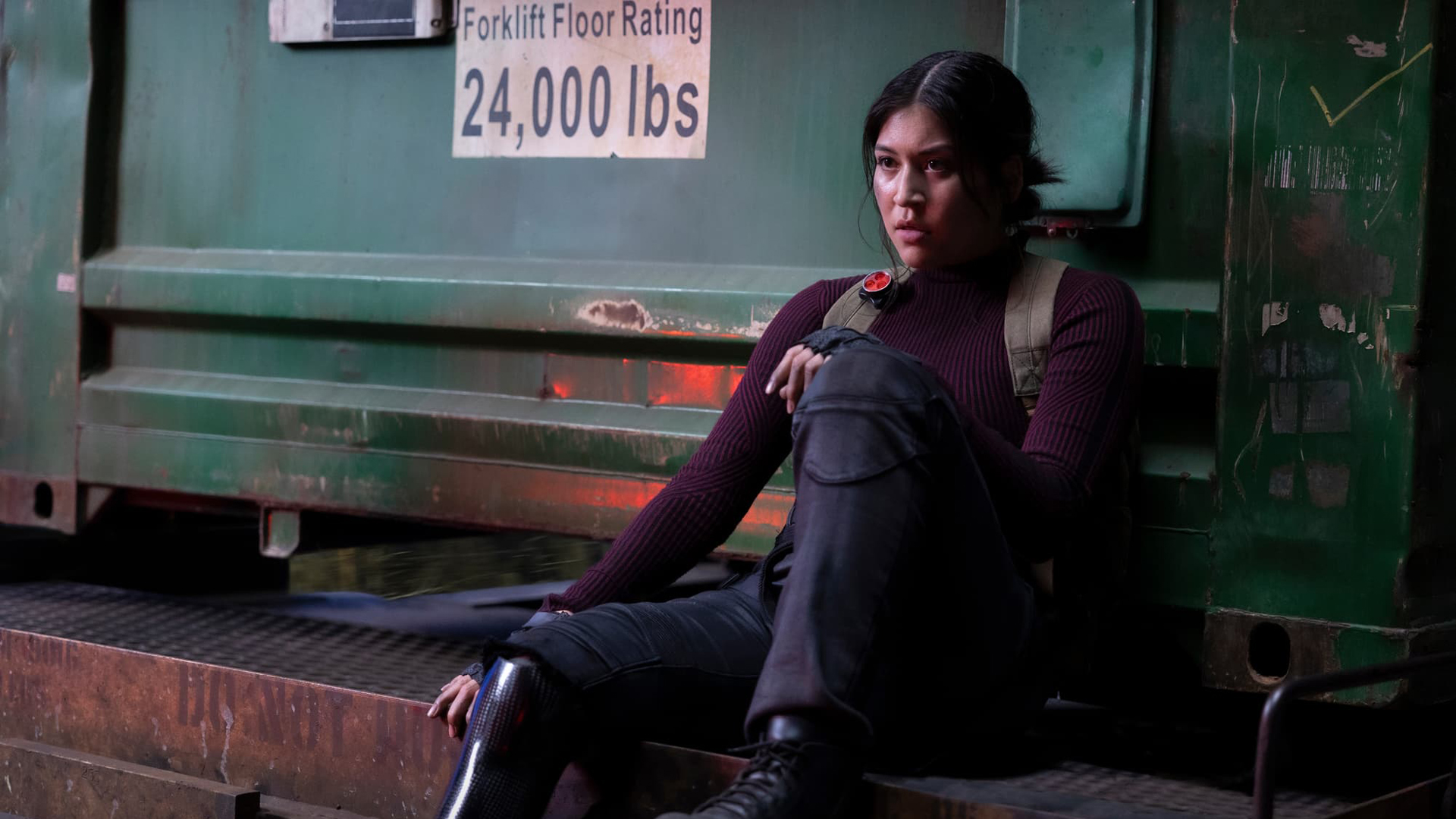
Of Marvel's 2024 line-up, Echo's success is the hardest to predict. The studio's plan to release just four projects this year is welcome news to people growing tired of its increasingly frequent output. Of that contingent, Echo is objectively the rank outsider.
Deadpool 3 – Marvel's sole 2024 movie release – looks set to deliver a riotous multiverse-spanning tale that celebrates the X-Men's 20-plus-years cinematic history. Agatha: Darkhold Diaries' links to fellow Marvel show WandaVision give it an edge over the competition, while X-Men 97, a long overdue sequel to the classic X-Men: The Animated Series, should provide nostalgia aplenty.
After watching Echo's first three episodes, though, I'm of the firm belief that it's a genuine dark horse contender for best Marvel Cinematic Universe (MCU) show of the year. Some might question the validity of that opinion when Echo has – at the time of writing – no competition to speak of. Yet, with its superhero slant on some of the 21st century's best assassin and crime-based fare, I was pleasantly surprised by what Echo had to offer.
The imitation game
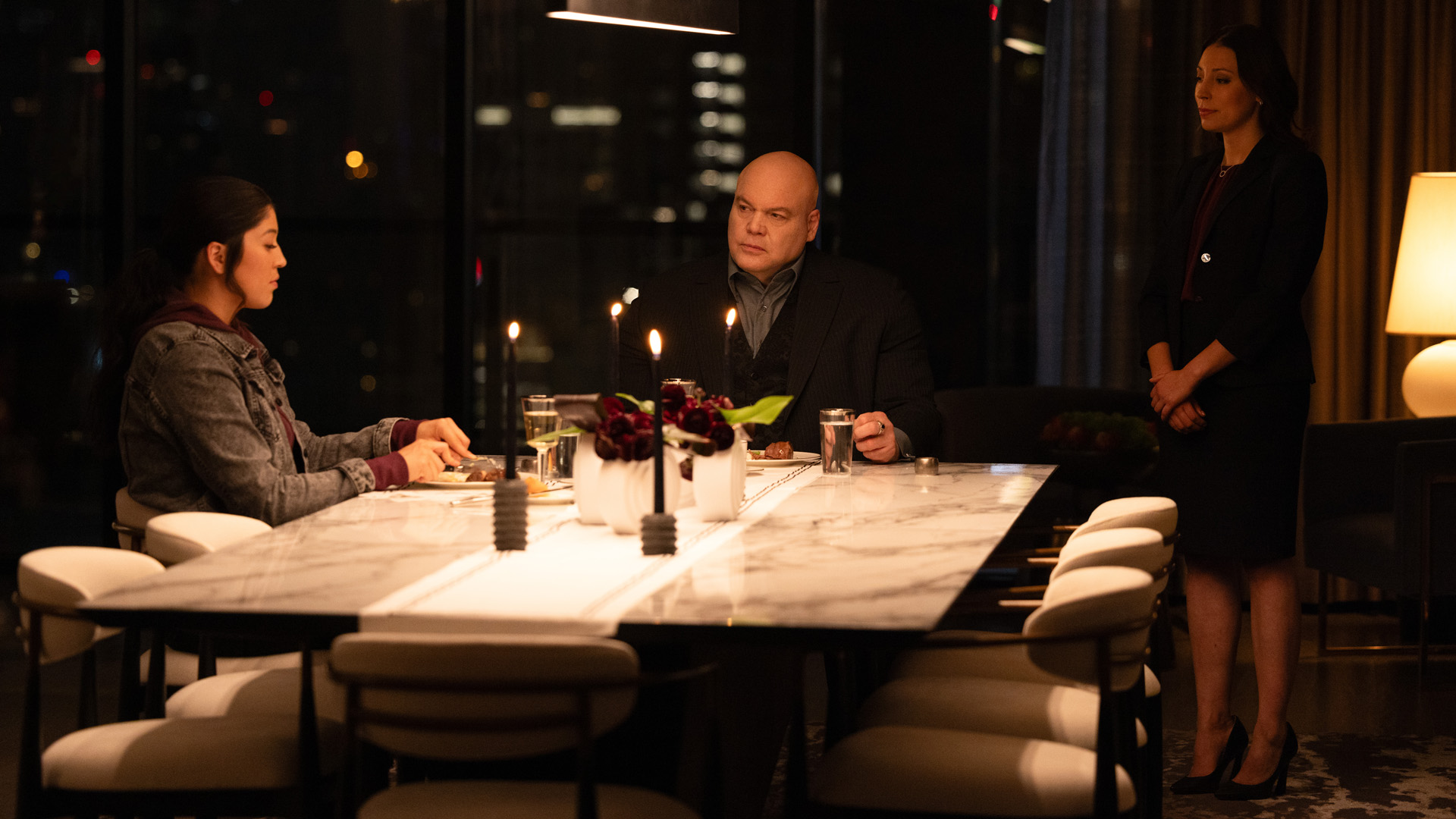
Picking up after 2021's Hawkeye, Echo finds Maya Lopez (Alaqua Cox) being pursued by Wilson Fisk's (Vincent D'Onofrio) criminal empire. That's a given after Maya shot the mob boss during Hawkeye's finale, but it's her one-woman guerrilla warfare campaign to disrupt Fisk's crime syndicate – in Tamaha, Oklahoma, her hometown – that paints a target on her back. However, Maya soon learns that violence begets violence: a revelation that forces her to confront her past indiscretions and unresolved childhood trauma and work out the kind of person she wants to be.
Before the Marvel Phase 5 miniseries tackles that primary story beat, it has a lot to set up – and when I say a lot, I mean it.
Echo isn't afraid to replicate Netflix's Daredevil in the ultraviolent stakes
Echo is the first Marvel show to fall under the studio's Spotlight banner, a new initiative that focuses on telling grounded, character-driven tales that audiences can enjoy without prior knowledge of other MCU projects: think of 2022's Moon Knight, a Marvel series unburdened by wider universal ties. In Marvel's increasingly convoluted multimedia franchise, Echo's accessibility to newcomers is something to applaud.
Such approachability is a double-edged sword, though. As a standalone tale, Echo is narratively distinct from its TV cousins, with the bulk of its opening episode spent covering Maya's backstory. It's a different approach to that taken by many of its peers, such as Hawkeye and Ms Marvel, whose chief storylines are supplemented with flashback sequences threaded throughout.
Sign up for breaking news, reviews, opinion, top tech deals, and more.
It's a satisfying way of introducing Maya and the show's supporting cast to first-time viewers, for whom the expository material is necessary. However, long-time MCU fans may be irked by the numerous scenes in episode 1's first 30 minutes pulled directly from Hawkeye that don't progress Echo's present-day plot forward.
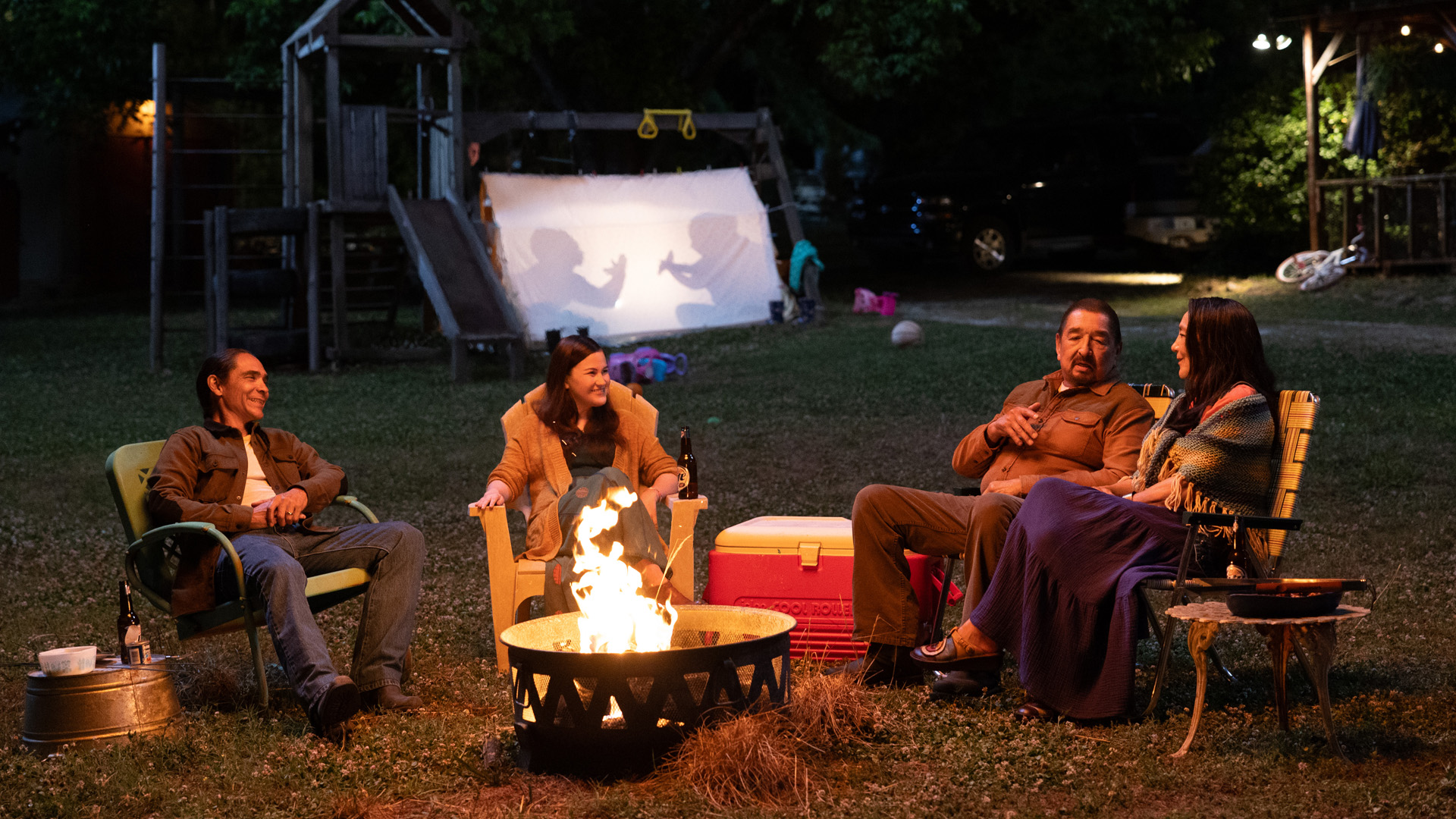
Covering Maya's history from the outset notwithstanding, it's clear to see why, with its unique vibe and imagery, Echo was selected to kickstart Marvel's Spotlight enterprise. Its intimate rural and small-town setting, anarchic plot, and gritty tonality reminded me of popular, award-winning crime shows like AMC's Breaking Bad and Reacher on Prime Video – although it's not a cheap imitation of those beloved shows. The supernatural mystique born out of Echo's authentic and empowering portrayal of Native American spiritualism, however, ensures this supposedly down-to-earth limited series isn't completely devoid of the superpower-based mythos we've come to expect from Marvel.
As for the brutal action teased in Echo's first trailer – it's the MCU's first R-rated TV show – its heady mix of bone-crunching physical combat and cut-throat gun battles resemble analogous fights in Netflix's Daredevil and Lionsgate's John Wick. Given Echo's ties to the former, similarities between the pair are to be expected, but Echo's likeness to John Wick and Breaking Bad is what gives it a pleasingly distinct style and visual flair.
Echo's main struggle comes from its inability to deliver a compelling character-driven narrative
Daredevil's influence, though, cannot be overstated, especially where Echo's cold-blooded set-pieces are concerned. Echo isn't afraid to replicate its genre sibling in the ultraviolent stakes, with a grisly spectacle appearing just 10 minutes into its premiere. From there, things only get more graphic, with all manner of neck-snapping, blood-splattering headshots, and other viscerally gruesome moments showcasing the series' non-child-friendly attitude.
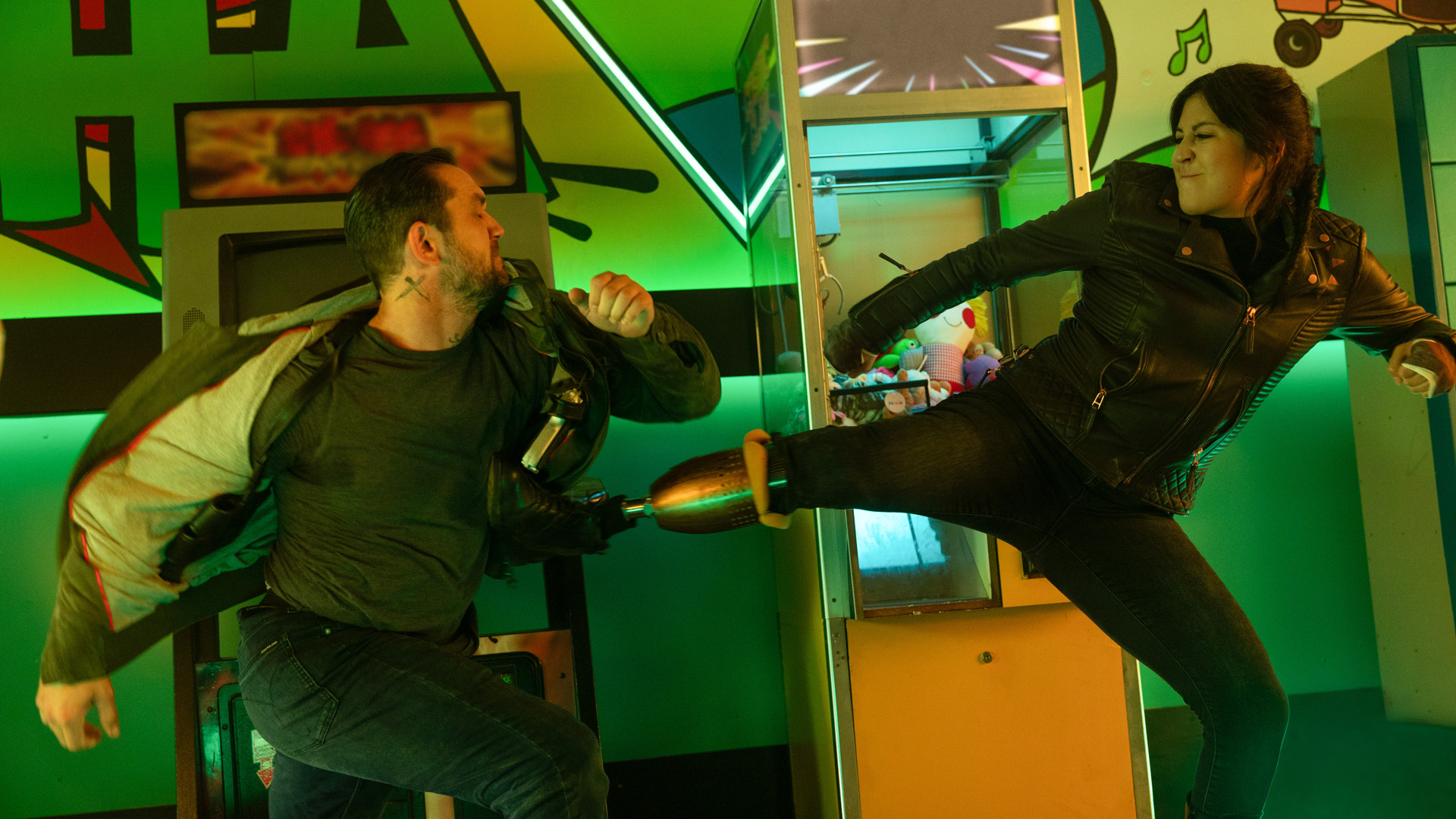
Speaking of Daredevil, the major set-piece in Echo episode 1, which sees Maya – on her first mission – square off with Matt Murdock's (Charlie Cox) superhero alias, is a real treat. Daredevil's DNA courses through this sequence, with its one-shot-style nature, Daredevil's classic red suit, and use of his trademark billy clubs, further proving that Netflix's Marvel TV shows are officially canon in the MCU. Even if that wasn't the case, it's delightful to see Daredevil and Echo, who have an extensive history in Marvel comics, finally duke it out in electrifying, live-action fashion.
That said, episode 3's main fracas is, in my view, far more barbaric and thrilling. Maya's clever use of her environment, such as using an arcade's laser guns and skeet balls as weapons, and physical improvisation – her prosthetic leg comes in most handy – shows off her impressive cold-blooded skillset as she scraps with Fisk's goons. Echo's action goes hard by MCU standards, and that gives me hope for future adult-centric Marvel projects, including Deadpool 3 and Daredevil: Born Again.
Character flaws
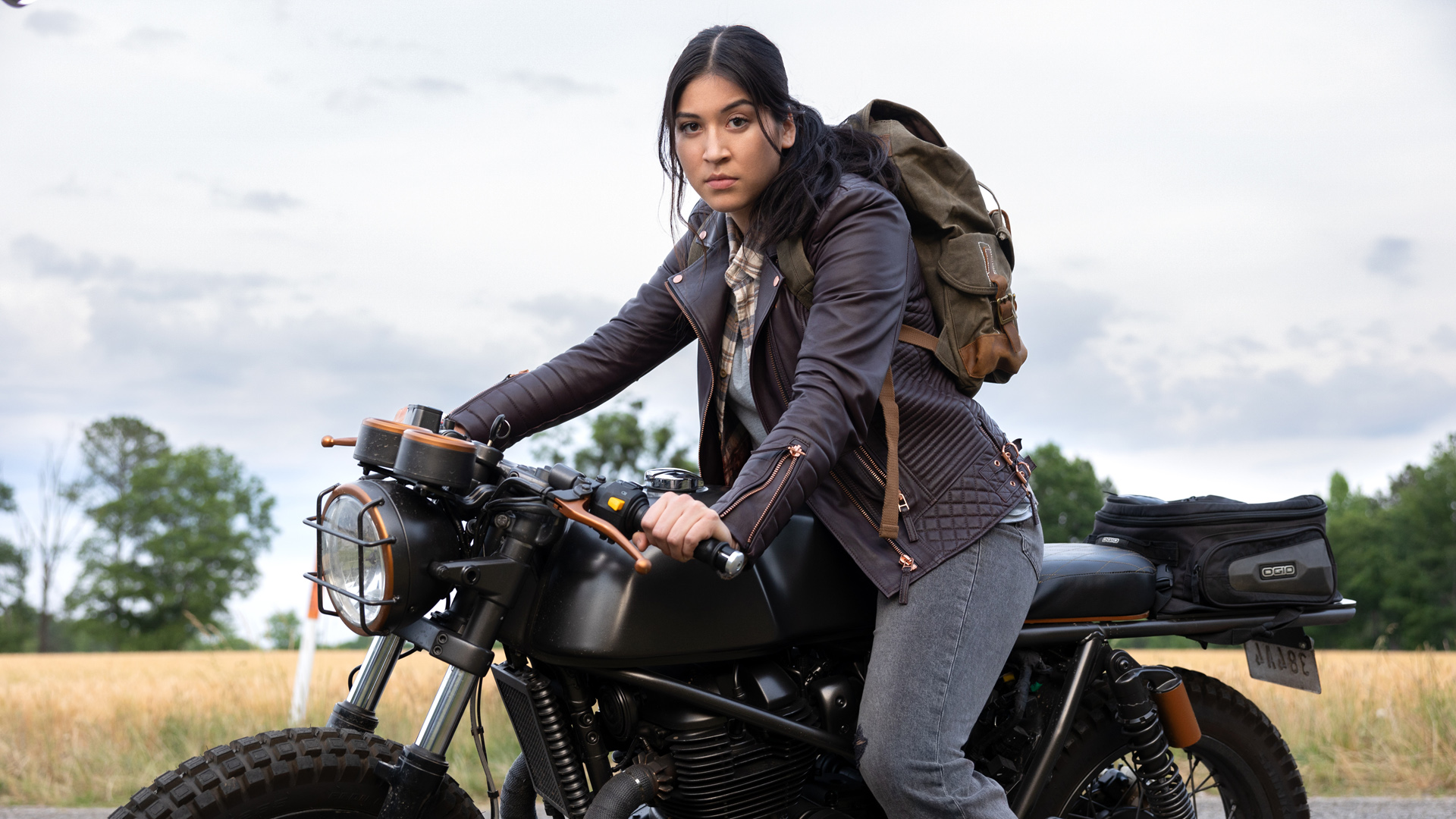
Echo's main struggle, though, comes from its inability to deliver a compelling character-driven narrative.
With Hawkeye revealing it was Fisk who murdered Maya's father during the Blip, aka the five-year period between Avengers: Infinity War and Avengers: Endgame, Echo's protagonist understandably seeks vengeance against her surrogate parent. Indeed, it's her ongoing crusade against Fisk that leads Maya back to her hometown as she attempts to hinder his criminal empire by any means possible.
Echo's approachability is a double-edged sword
It's a plot device that fuels Maya's arc and forces her to reckon with her past but, in the first three episodes at least, her character growth amounts to nothing. Alaqua Cox is pretty absorbing as the brooding, emotionally damaged titular character and does her best with the material. From what I watched, though, Maya comes across as an aggressive one-note individual. Her morally misaligned character deserved to be more fleshed out by episode 3's end credits. Here's hoping this problem is corrected in Echo's final two entries, even if it ends up being rushed.
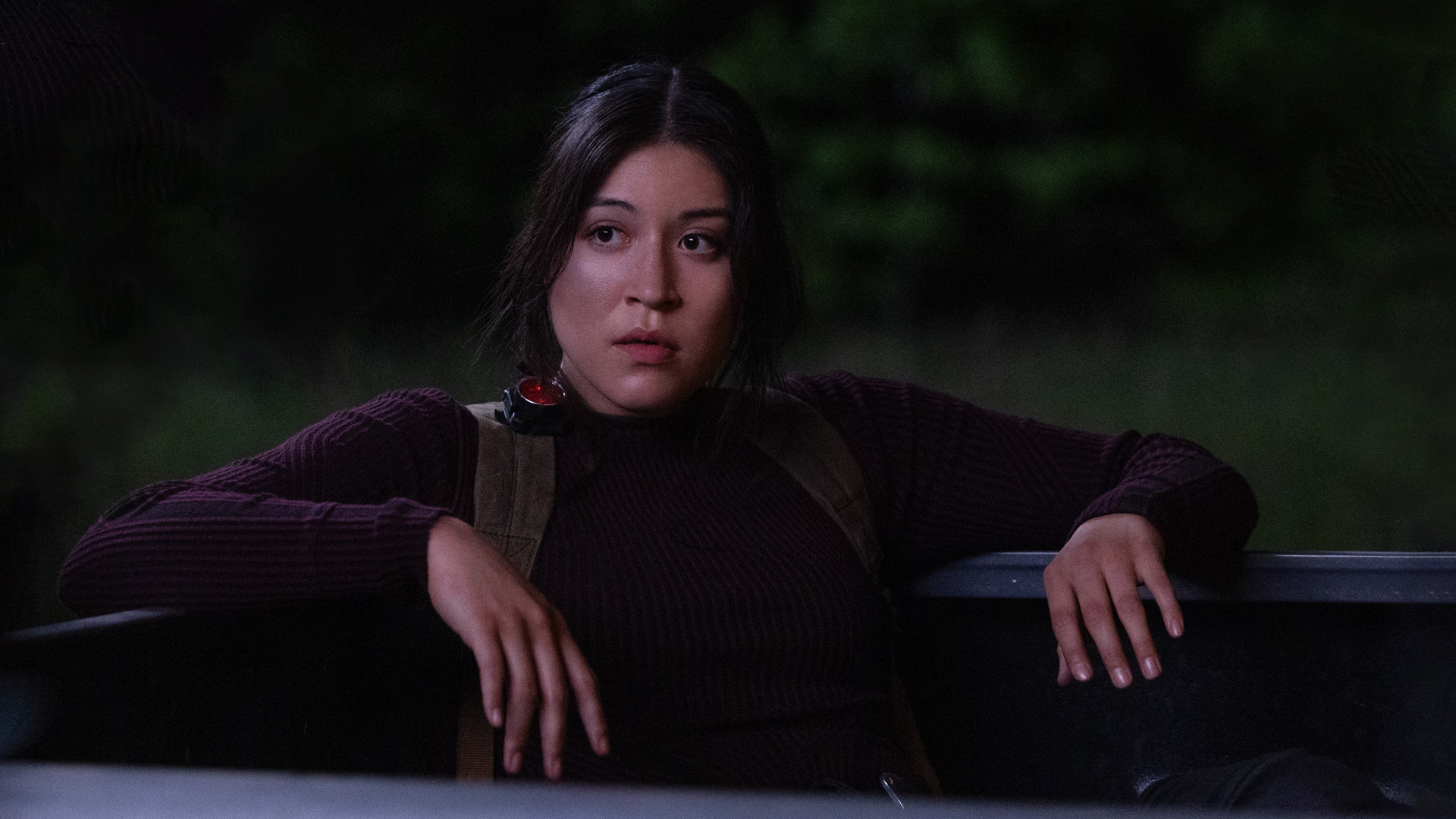
Maya isn't the only individual whose character development leaves something to be desired. Whether by storytelling design or Echo's truncated five-episode plan – episodes 2 and 3 feel like they've been stitched together from three separate entries – certain individuals and their association with Maya bear the brunt of the show's shorter episodic count.
Indeed, Maya's unexpected reappearance in Tamaha, coupled with her turf war with Fisk's wide-reaching empire, means her actions are ripe for familial drama. The embryonic gangland feud creates an undercurrent of tension within Tamaha's community and among those closest to Maya – well, outside of her confidant-style relationship with Skully (Graham Greene). The duo's humor-laced and candid chats are a marked departure from other tête-à-têtes. That dynamic aside, potentially taut interactions between Maya and those caught in the crossfire, such as her uncle Henry (Chaske Spencer), who still has ties to Fisk's empire, lack the requisite melodrama.
D'Onofrio's Fisk commands the screen with monstrous intent
Maya's core relationships with grandmother Chula (Tantoo Cardinal) and former best friend Bonnie (Devery Jacobs) are equally underwhelming. Given the world-shattering event that transpired during Maya's childhood, the estrangement between Maya and the pair is immediately evident. However, Echo doesn't fully embrace the division – born out of the trio's internal, unresolved anguish from said fateful act – that's grown in the years since. The lack of screen time Maya shares with both parties in Echo's first three episodes doesn't help, mind you, and makes its positioning as a female-centric story – so far, anyway – feel like a missed opportunity.
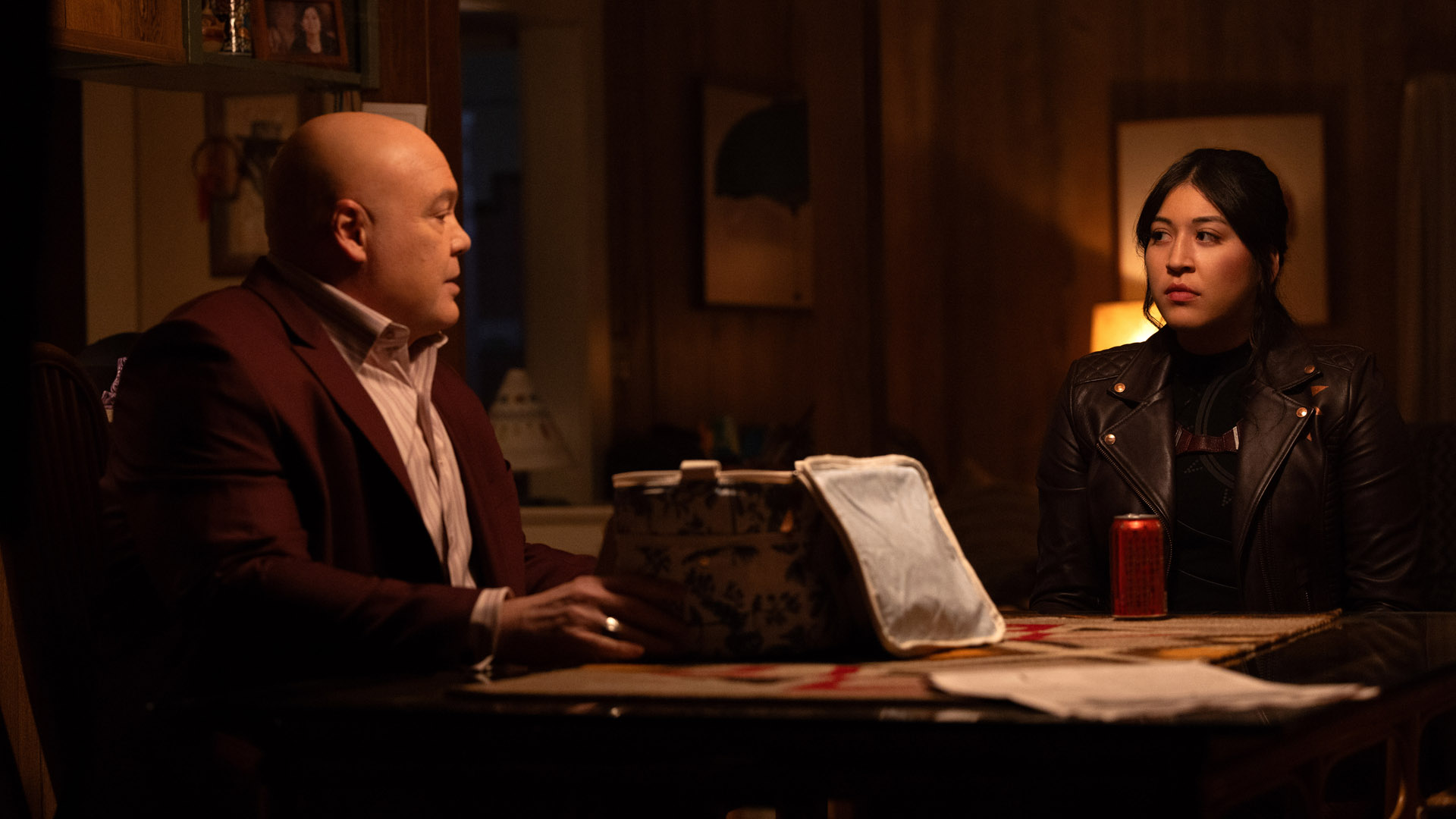
If there's one character and their interactions with Maya that Echo gets right, it's Fisk. As in Daredevil, D'Onofrio is a devilish delight, slipping back into his most famous role as if he's never been away.
With his unnerving, calculating, and towering demeanor – not to mention those unsettling hand/finger-based ticks he's brought over from Daredevil – D'Onofrio commands the screen (sometimes without uttering a single word) with monstrous intent, even in scenes where his affection for Maya shines bright. Echo is Maya's story, and nothing will take away from that, but Fisk is a huge part of it. He's the one who suggests Maya use her anger as fuel and shapes her into a cold-blooded killer, after all. Again, conversations between the duo are used sparingly in episodes 1 through 3 but, unlike the scenes where Maya fractiously converses with Chula and Bonnie, her interactions with Fisk have a consequential weight to them. I can't wait to see these mirror images of one another relock verbal horns in the show's final two episodes.
My verdict
Echo is a mostly enjoyably Marvel show that breaks new ground for the Disney subsidiary. The first of its kind to be fronted by a character with anti-heroic/villainous tendencies, and a lead actor who's an amputee, deaf, and Native American, is a seminal moment for the MCU, not least because of the societal and cultural impact it'll have on Marvel fans who have a superhero of this ilk to call their own.
As I've alluded to, it's also an experimental project that, while being a pleasing supplementary piece of MCU material, bears the marks of a trial-and-error production that's not without notable flaws. Yes, its arrangement as a standalone series means it feels like less of a homework assignment when it comes to staying updated on all things Marvel, but it can be argued that casual fans might not deem it necessary viewing.
There will be Marvel fanatics who frown on Maya's altered backstory and superhuman abilities – I won't spoil anything, but let's just say her mimic-based powers aren't the only ones she possesses – but they're significant to the story Marvel is telling. Amid more pressing issues with Echo, I didn't find them off-putting.
So, is Echo worth streaming? For MCU diehards and Daredevil fans: absolutely. For everyone else: that depends. Anyone who just dips their toes into Marvel's cinematic juggernaut every so often can probably skip it. But, if you're after a series with a Netflix-style release that introduces you to the MCU without pre-existing knowledge, or a gripping and gratuitously cruel crime story with heist elements, reams of drama, and the occasional joke, Echo will be right up your dark alley.
Marvel's Echo launches in full on Disney Plus on January 9 (US) and January 10 (internationally). It'll also be available on Hulu stateside until the end of April.
As TechRadar's senior entertainment reporter, Tom covers all of the latest movies, TV shows, and streaming service news that you need to know about. You'll regularly find him writing about the Marvel Cinematic Universe, Star Wars, Netflix, Prime Video, Disney Plus, and many other topics of interest.
An NCTJ-accredited journalist, Tom also writes reviews, analytical articles, opinion pieces, and interview-led features on the biggest franchises, actors, directors and other industry leaders. You may see his quotes pop up in the odd official Marvel Studios video, too, such as this Moon Knight TV spot.
Away from work, Tom can be found checking out the latest video games, immersing himself in his favorite sporting pastime of football, reading the many unread books on his shelf, staying fit at the gym, and petting every dog he comes across.
Got a scoop, interesting story, or an intriguing angle on the latest news in entertainment? Feel free to drop him a line.
